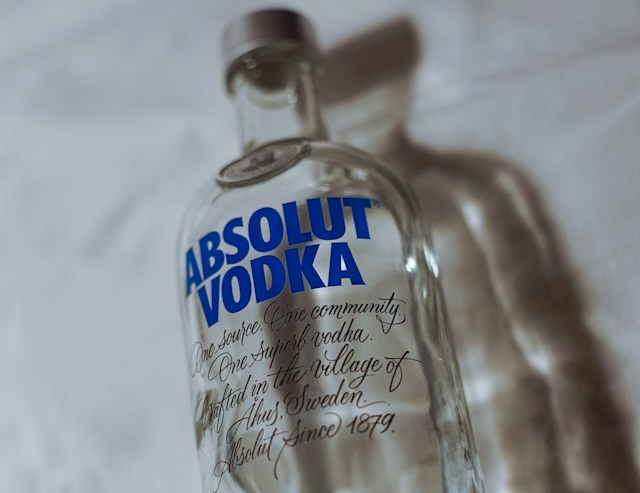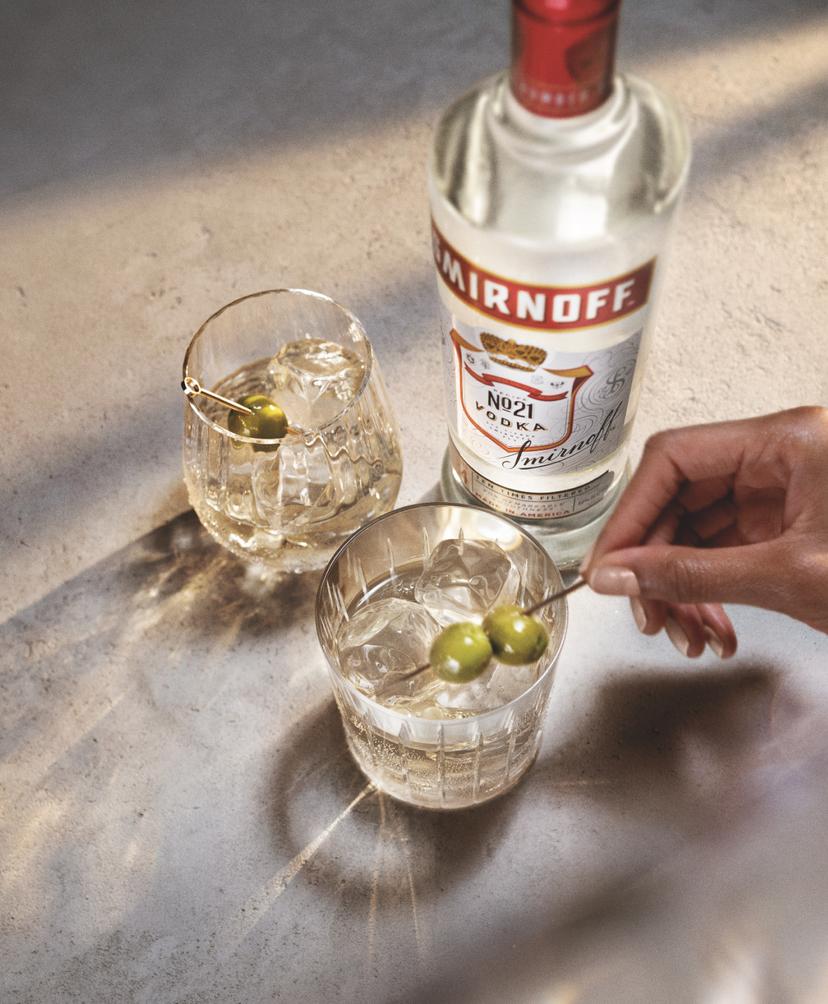
Vodka is one of the most popular alcoholic beverages worldwide. Its tasteless and odorless nature makes it a popular choice for mixing with other drinks. And many people wonder if they can smell vodka on someone’s breath after they consume it.
Table of Contents
The Science of Smelling Alcohol
When a person consumes alcohol, it is absorbed into the bloodstream and eventually exhaled through the lungs. This process leads to the production of volatile organic compounds (VOCs) that are detectable in a person’s breath.
Volatile Organic Compounds and Breath Analysis
Breath analysis is a technique used to detect VOCs in a person’s breath. The technique involves collecting a breath sample and analyzing it using gas chromatography-mass spectrometry (GC-MS). GC-MS is a highly sensitive and specific technique that can detect and quantify trace amounts of VOCs in a breath sample.
However, the concentration of VOCs in a person’s breath can vary depending on several factors, including the type and amount of alcohol consumed, the person’s metabolism, and the time elapsed since alcohol consumption. Therefore, the detection and quantification of VOCs in a person’s breath can be challenging, and the results may not always be accurate.
Limitations of Human Olfaction
Despite the use of sophisticated analytical techniques, human olfaction remains the most reliable and widely used method for detecting alcohol on a person’s breath. However, the ability of humans to detect alcohol on a person’s breath can be limited by several factors, including the person’s olfactory acuity, the concentration of alcohol in the breath, and the presence of other odors that may interfere with the detection of alcohol.
Factors Affecting Breath Odor Detection
When it comes to detecting alcohol on someone’s breath, there are several factors that can affect the accuracy of the detection. Here are some of the most important factors to consider:
Concentration of Alcohol Consumed
The concentration of alcohol consumed is one of the most important factors affecting breath odor detection. The more alcohol a person consumes, the stronger the odor will be on their breath. For example, a person who consumes a shot of vodka will have a much weaker odor on their breath than someone who consumes several drinks over the course of an evening.
Time Since Consumption
Another important factor is the time since consumption. Alcohol is metabolized by the liver at a rate of about one drink per hour. This means that the longer it has been since a person has consumed alcohol, the weaker the odor will be on their breath. For example, if a person had a drink an hour ago, the odor on their breath would be weaker than if they had a drink 15 minutes ago.
Individual Metabolism Rates
Individual metabolism rates can also affect breath odor detection. Some people metabolize alcohol faster than others, which means that the odor on their breath will be weaker even if they consume the same amount of alcohol as someone else. Additionally, some people may have a genetic predisposition to metabolize alcohol more slowly, which can lead to stronger odors on their breath.
Consumed Food and Beverages
Finally, the food and beverages a person consumes can also affect breath odor detection. Strong-smelling foods and beverages like garlic, coffee, and onions can mask the odor of alcohol on a person’s breath. On the other hand, some foods and beverages, like citrus fruits and mint, can actually enhance the odor of alcohol on a person’s breath.
 photo credit: www.smirnoff.com
photo credit: www.smirnoff.com
Detection Methods
There are several methods that are commonly used in detecting alcohol consumption. The most popular methods include breathalyzers, field sobriety tests, and professional observations.
Breathalyzers and Their Functionality
Breathalyzers are devices that measure the amount of alcohol in a person’s breath. They work by analyzing the amount of alcohol that is present in the air that a person exhales. This air is then analyzed by the device, which calculates the person’s blood alcohol concentration (BAC).
Breathalyzers are commonly used by law enforcement officers to determine if a person is driving under the influence of alcohol. They are also used in other settings, such as workplaces, to ensure that employees are not under the influence of alcohol while on the job.
Field Sobriety Tests
Field sobriety tests are a series of tests that are performed by law enforcement officers to determine if a person is under the influence of alcohol. These tests typically include tasks such as walking in a straight line, standing on one leg, and following a moving object with the eyes.
Field sobriety tests are often used in conjunction with breathalyzers to determine if a person is under the influence of alcohol. They are also used in situations where a breathalyzer is not available or cannot be used, such as during a traffic stop.
Professional Observations
Professional observations are another method that is used to detect alcohol consumption. This method involves observing a person’s behavior and physical appearance to determine if they are under the influence of alcohol.
Law enforcement officers and other professionals are trained to recognize the signs of alcohol consumption, such as slurred speech, impaired coordination, and bloodshot eyes. These observations are often used in conjunction with other methods, such as breathalyzers and field sobriety tests, to determine if a person is under the influence of alcohol.
Preventive Measures
To avoid having a strong alcohol odor on one’s breath, there are several preventive measures that one can take. These measures include using alcohol-free products, practicing good personal hygiene, and developing responsible drinking habits.
Alcohol-Free Products
Using alcohol-free mouthwash, breath mints, and gum can help mask the odor of alcohol on one’s breath. Products that contain alcohol can actually exacerbate the odor, as alcohol dries out the mouth and allows odor-causing bacteria to thrive. Therefore, it is important to choose products that do not contain alcohol.
Personal Hygiene Practices
Practicing good personal hygiene can also help to minimize the odor of alcohol on one’s breath. Brushing one’s teeth, tongue, and gums thoroughly can help to remove any food particles or bacteria that may contribute to the odor. Flossing and using mouthwash can also help to remove any debris that may be trapped between teeth and gums.
Responsible Drinking Habits
The most effective way to prevent alcohol breath is to drink responsibly. This means limiting one’s alcohol intake, drinking plenty of water, and avoiding sugary or acidic mixers. Eating a meal before drinking can also help to slow down the absorption of alcohol into the bloodstream. Additionally, waiting a sufficient amount of time before driving or operating heavy machinery can help to ensure that one is sober and alert.
Frequently Asked Questions
Which type of alcohol is least detectable on someone’s breath?
Vodka is one of the least detectable types of alcohol on someone’s breath. This is because vodka has a subtle taste and aroma compared to other hard liquors. However, it is important to note that the amount of alcohol consumed and the individual’s metabolism can affect how detectable the alcohol is on their breath.
How can you tell if someone has been drinking vodka?
There are a few signs that someone has been drinking vodka, including the smell of alcohol on their breath and their behavior. However, it is important to note that the smell of vodka on someone’s breath may be less detectable than other types of alcohol. Other signs of alcohol consumption may include slurred speech, impaired coordination, and changes in mood or behavior.
Is it possible to detect vodka through someone’s sweat?
There is no scientific evidence to suggest that vodka or any other type of alcohol can be detected through someone’s sweat. Alcohol is primarily metabolized by the liver and excreted through the urine and breath. While some studies have suggested that alcohol may be present in sweat, the amount is typically very low and unlikely to be detected by others.
What are the characteristics of vodka’s scent on breath?
Vodka does not have a strong odor, which is why it may be less detectable on someone’s breath than other types of alcohol. However, as the body processes alcohol, there may be a stench in the mouth after drinking vodka. The scent of vodka on breath may be more subtle and less overpowering than other types of alcohol.
Are there any alcohols that are more difficult to smell on the breath than vodka?
While vodka is one of the least detectable types of alcohol on someone’s breath, there are other types of alcohol that may be more difficult to detect. For example, beer and wine may have a less potent odor than hard liquor, which can make it more difficult to tell if someone has been drinking. However, it is important to note that the amount of alcohol consumed and the individual’s metabolism can affect how detectable the alcohol is on their breath.
Conclusion
The question of whether or not you can smell vodka on someone’s breath is a complex one. While vodka itself is odorless, the smell of alcohol can still be detected on someone’s breath. However, it may be difficult to identify the specific alcohol as vodka due to its subtle odor.
It is worth noting that some people may experience a “rubbing alcohol” smell when sweating after consuming vodka. This is due to the breakdown of alcohol in the body and is not necessarily an indicator of overconsumption.
While it may be difficult to detect the specific smell of vodka on someone’s breath, the presence of alcohol on the breath can be an important indicator of responsible drinking habits.
Related Posts:
If you’re interested in learning more about alcoholic beverages, here are some related posts that you might find interesting:
- What is Moonshine Whiskey: A Guide to the Illicit Spirit: This post provides an in-depth look at moonshine whiskey, a type of whiskey that is often associated with illegal production and distribution. You’ll learn about the history of moonshine, how it’s made, and the different types of moonshine that are available.
- Is Crown Royal Pineapple a Real Flavor? Here’s What You Need to Know: Crown Royal Pineapple is a popular whiskey-based liqueur that is often used in cocktails. This post explores whether or not the flavor is real, and provides some tips on how to enjoy it.
- How to Enjoy Whiskey Without the Burn: Tips and Tricks: Whiskey can be a bit harsh for some people, but this post offers some tips on how to enjoy it without experiencing the burn. You’ll learn about the different types of whiskey, how to properly taste it, and some common whiskey cocktails.
- Virginia Black Whiskey Price: How Much Does It Cost?: Virginia Black Whiskey is a popular American whiskey that has gained a lot of attention due to its association with the famous rapper, Drake. This post explores the history of the brand, the different types of whiskey that are available, and how much you can expect to pay for a bottle.
- What Does Bottom Shelf Whiskey Mean? Explained.: Bottom shelf whiskey is a term that refers to a type of whiskey that is usually less expensive and of lower quality than other options on the market. This post explains what bottom shelf whiskey is, why it’s often considered to be of lower quality, and some tips on how to identify a good bottle of whiskey.



